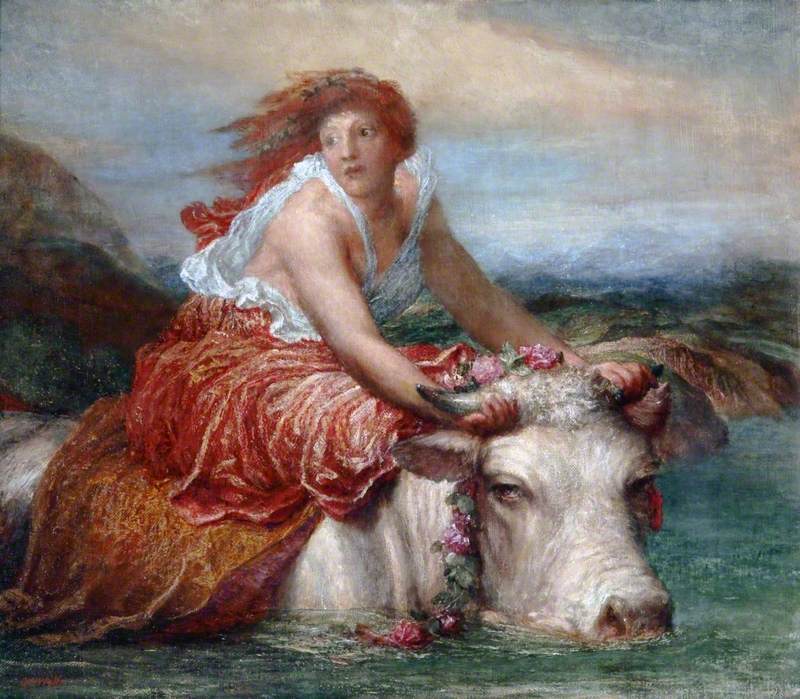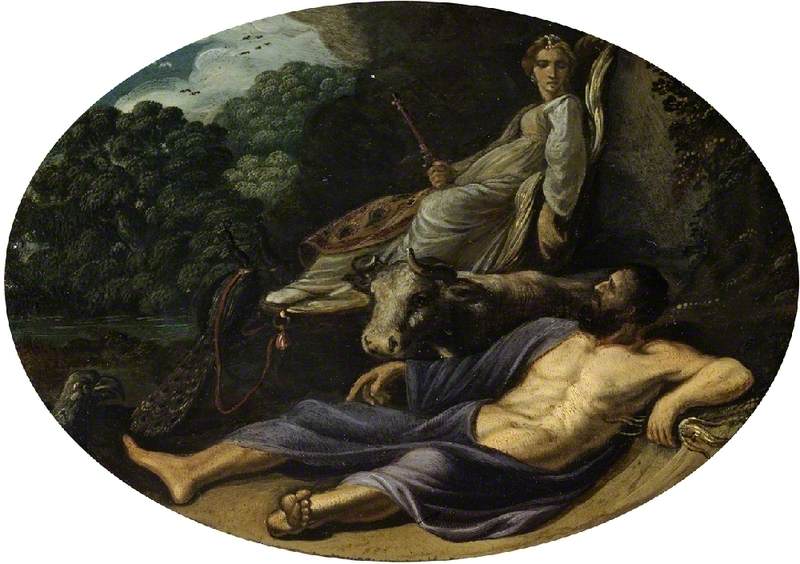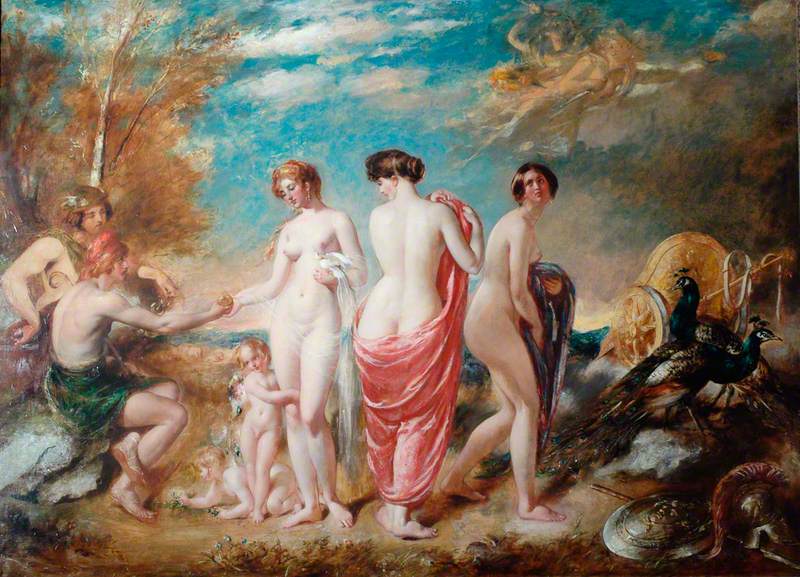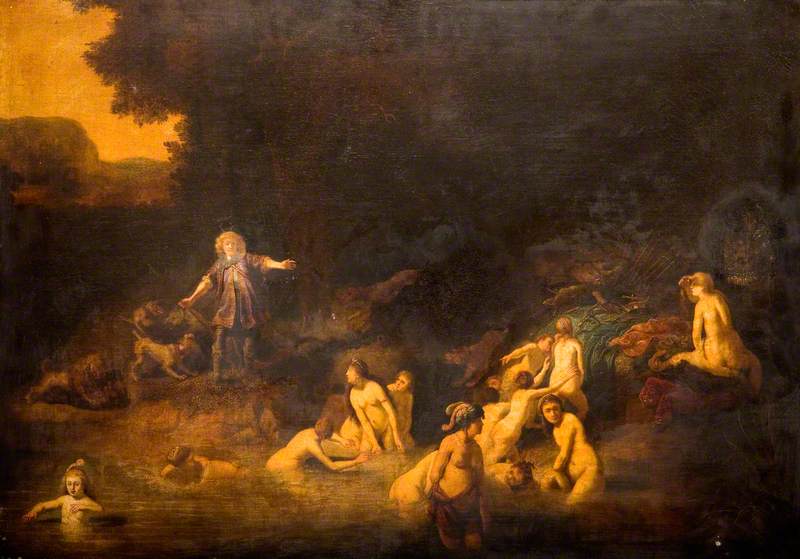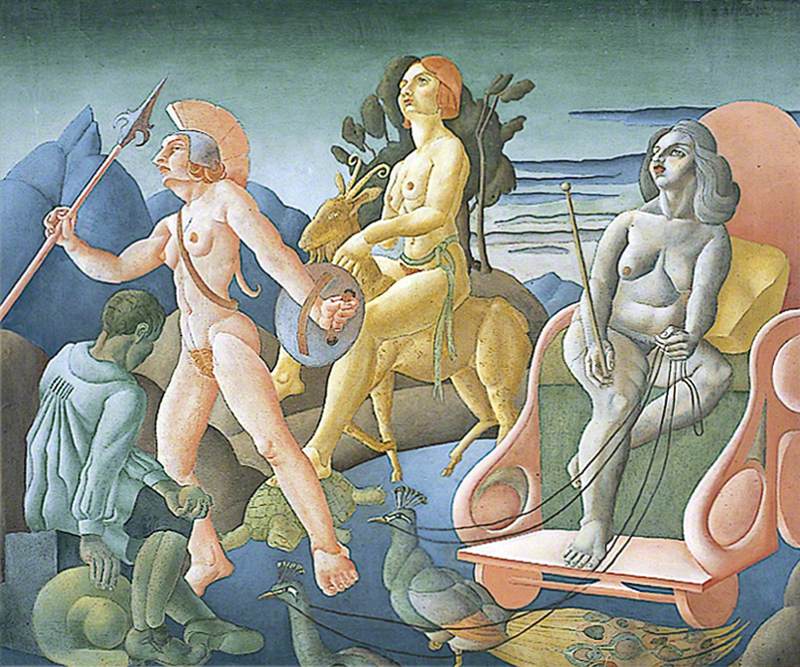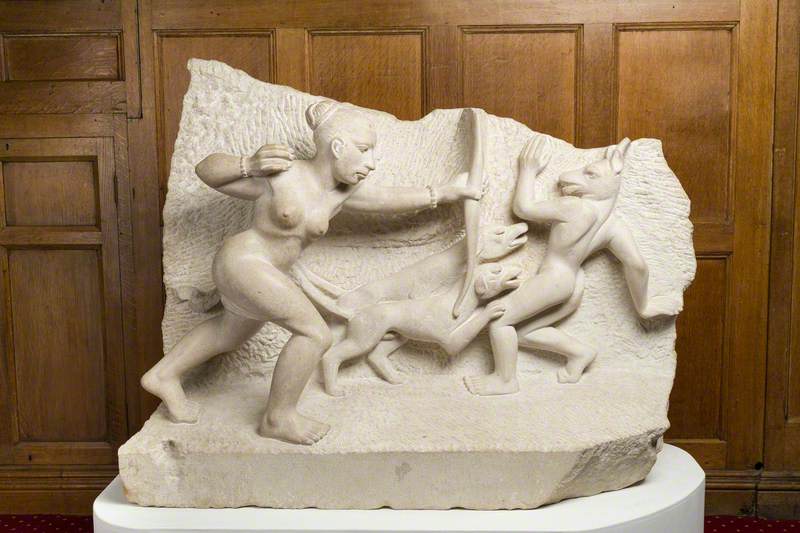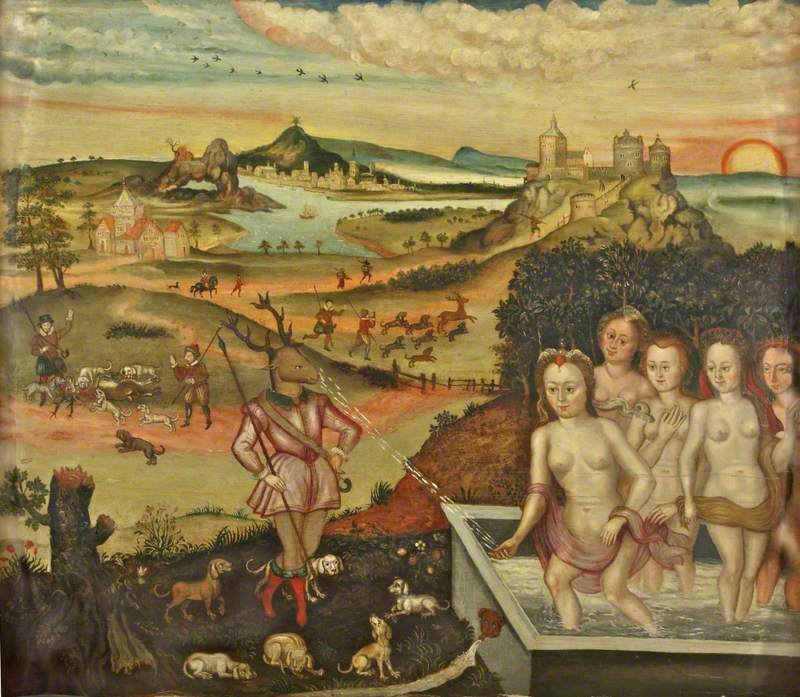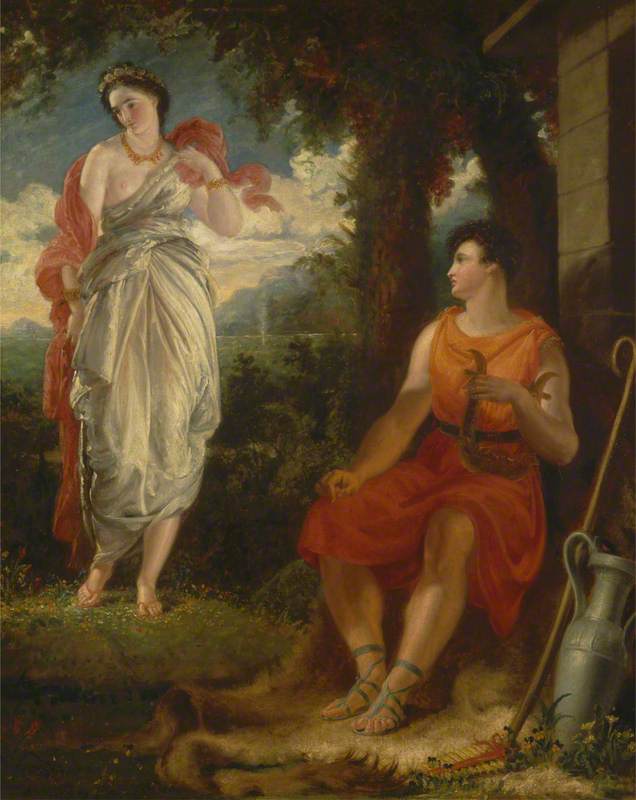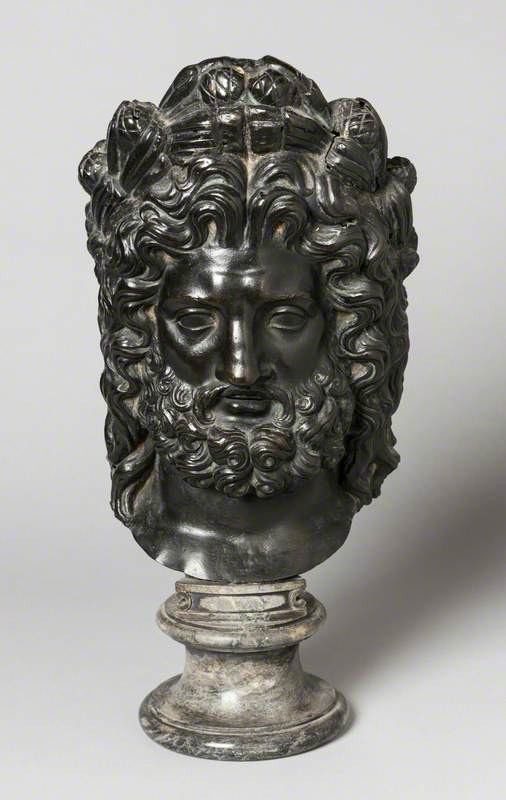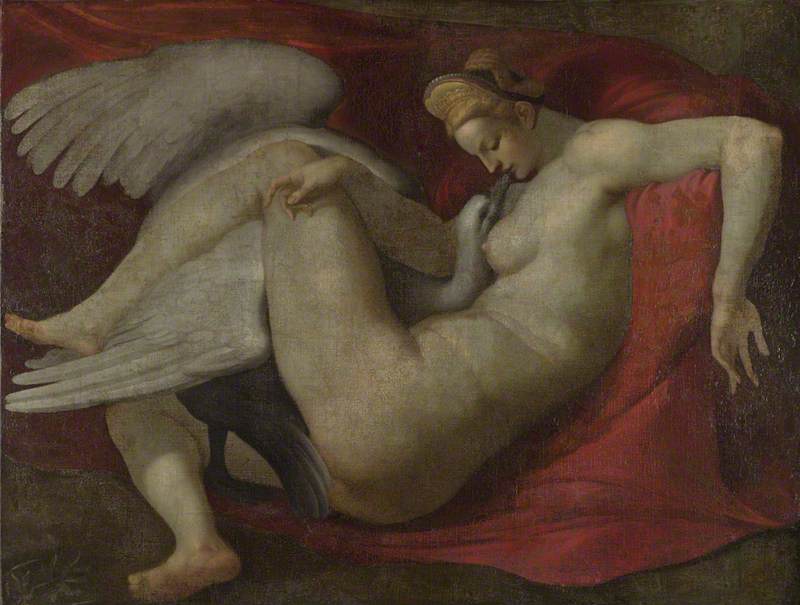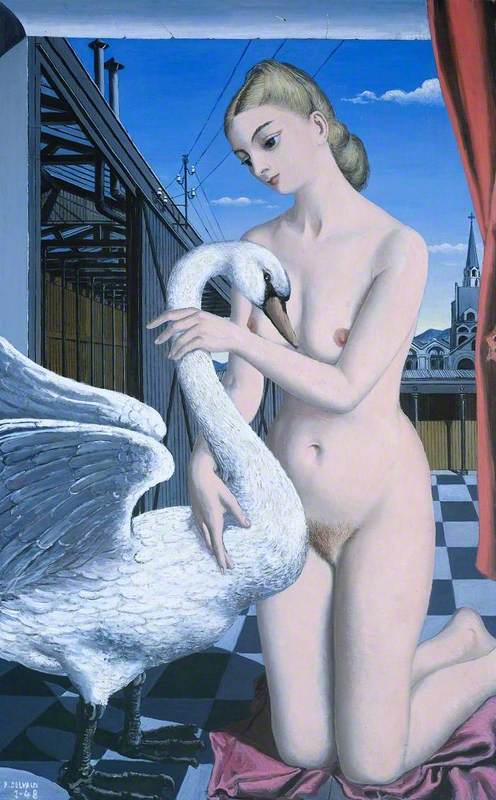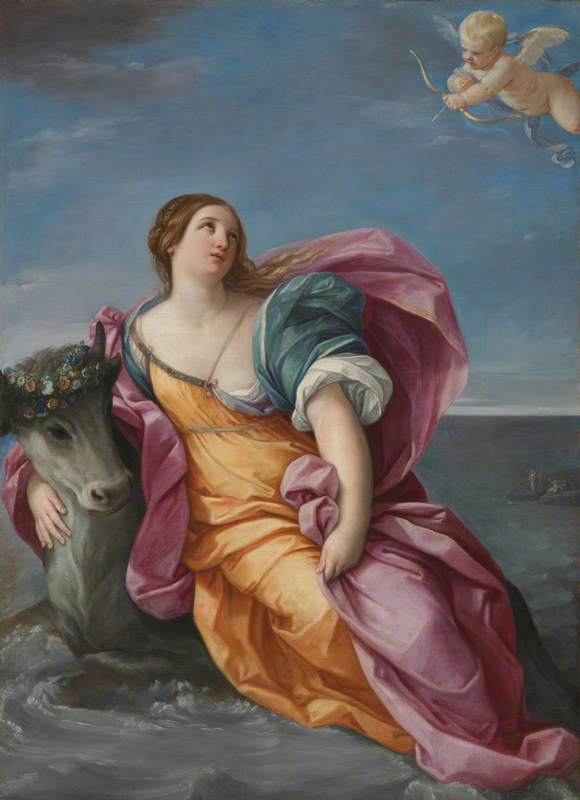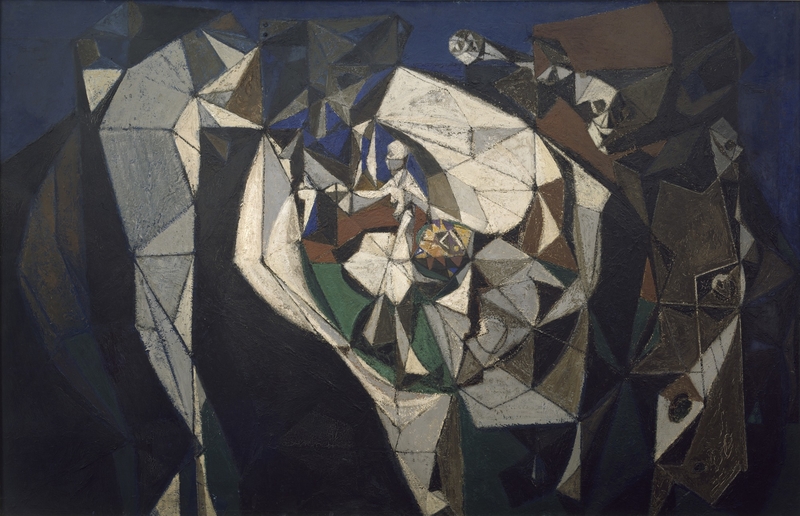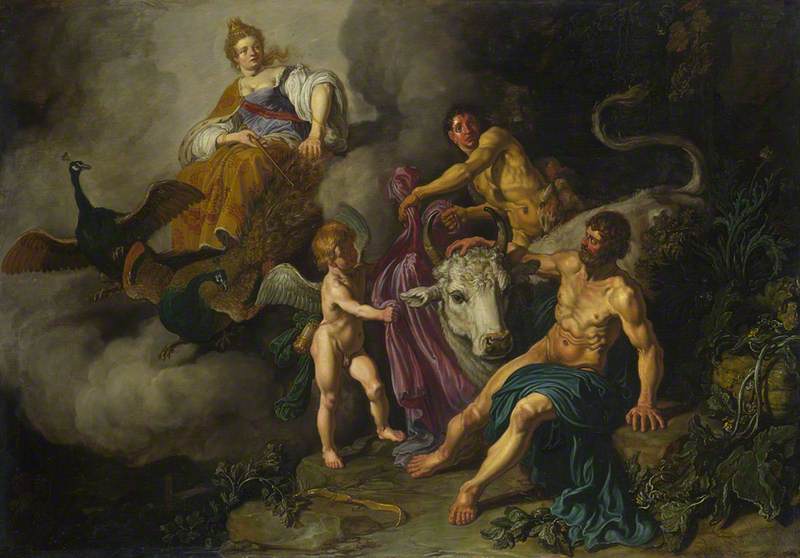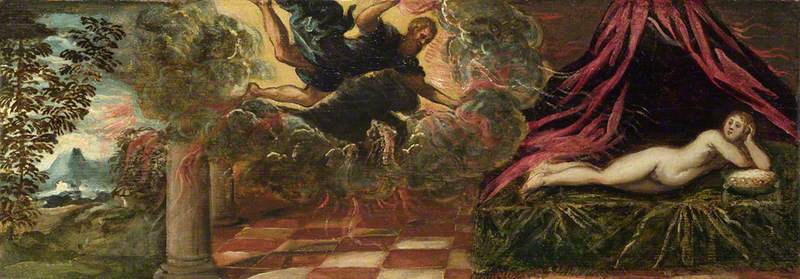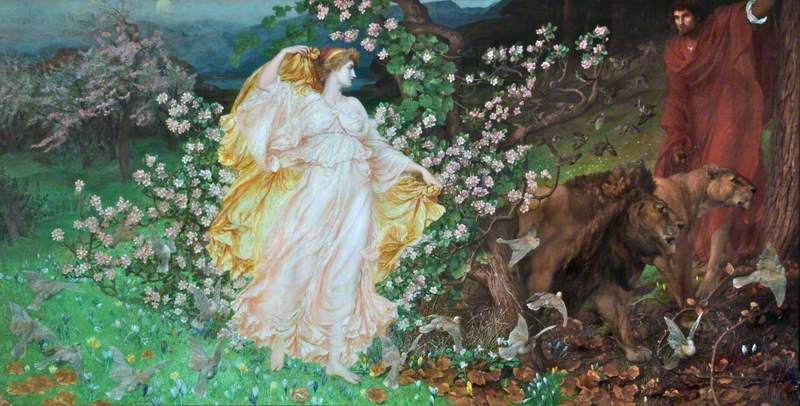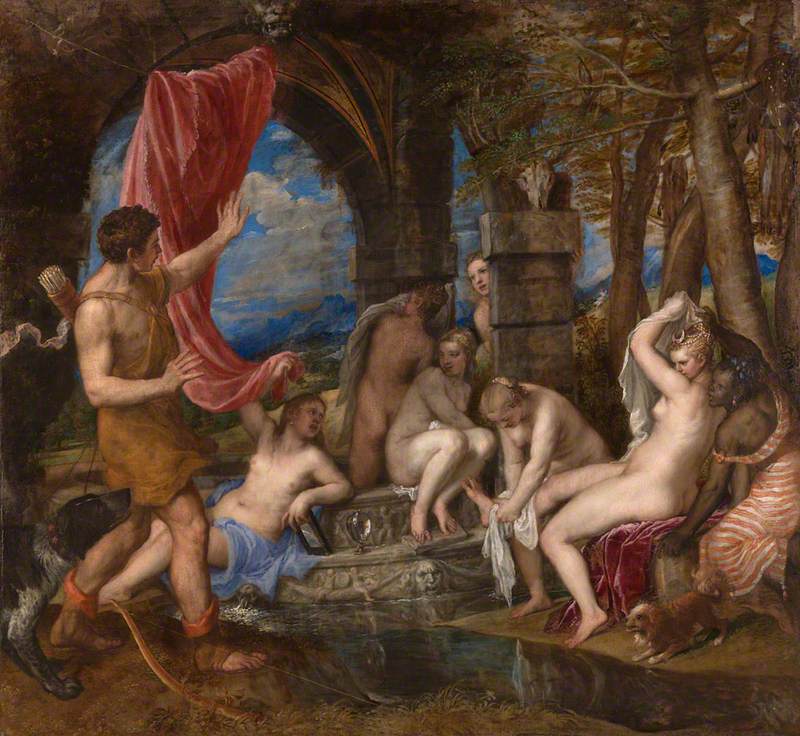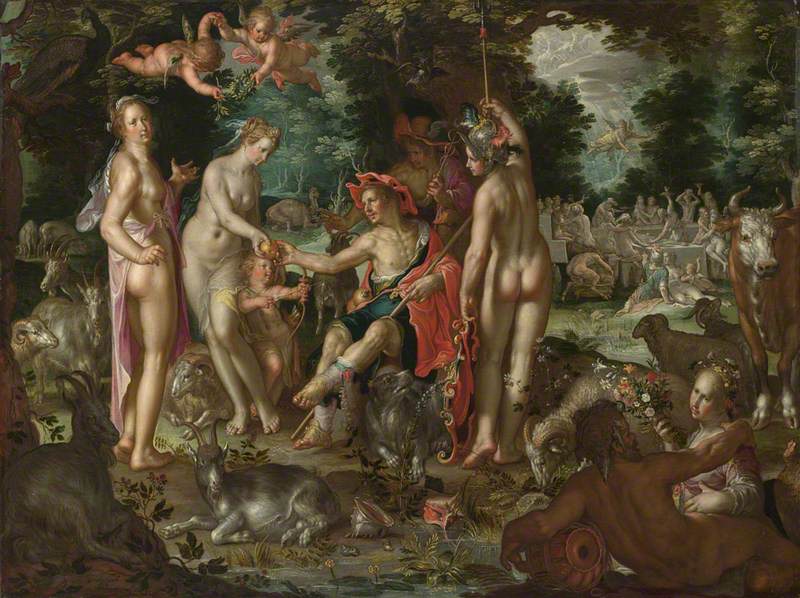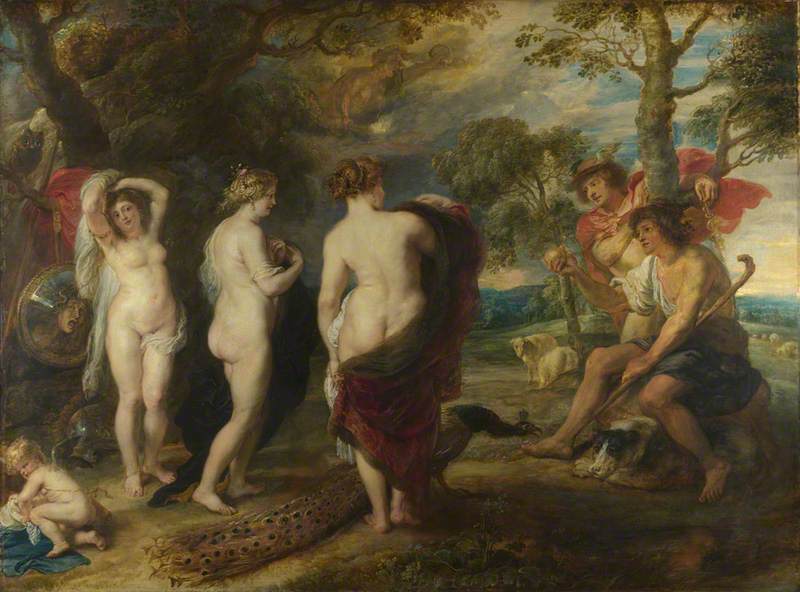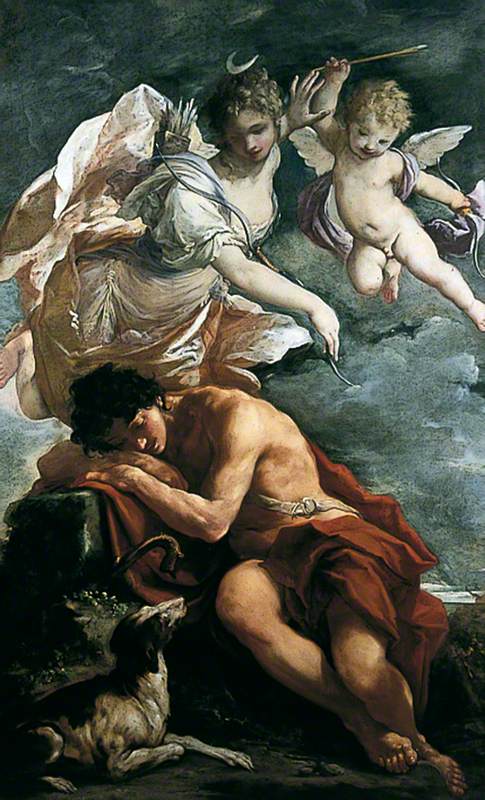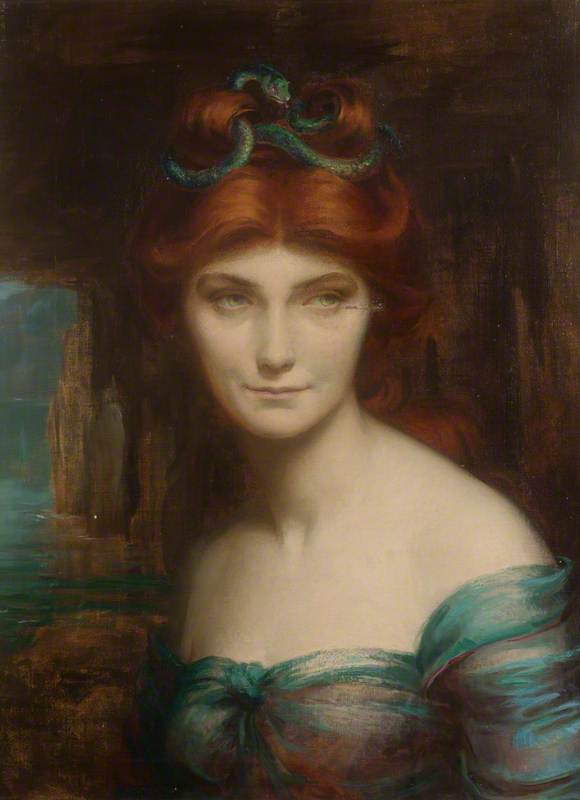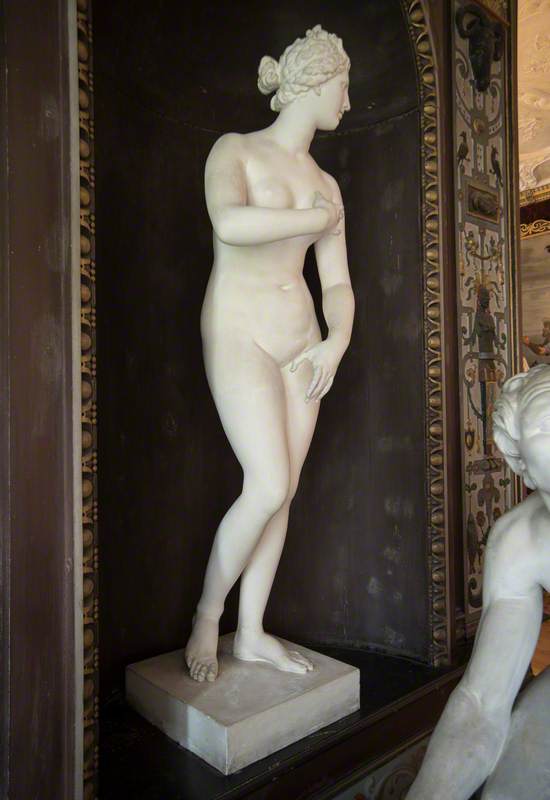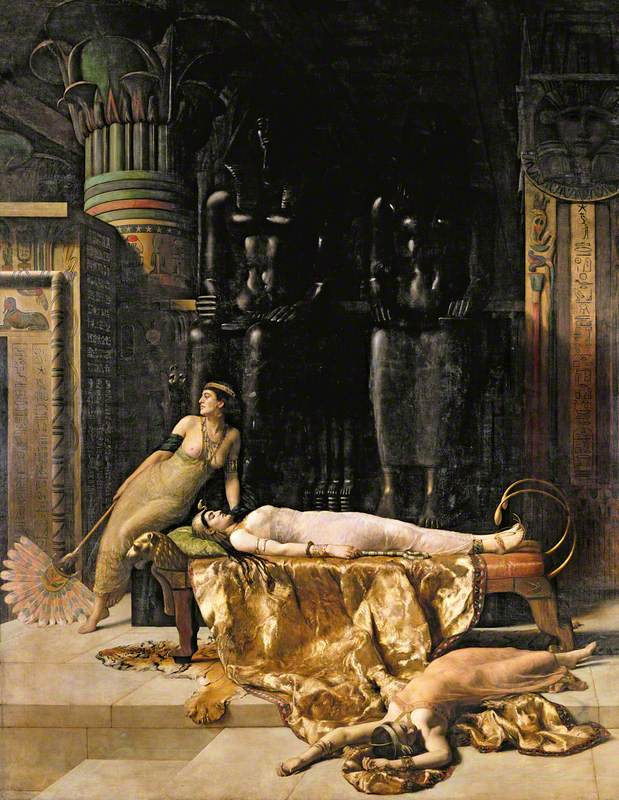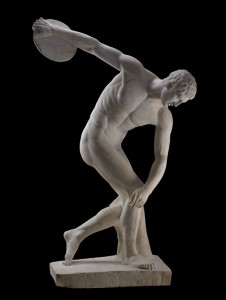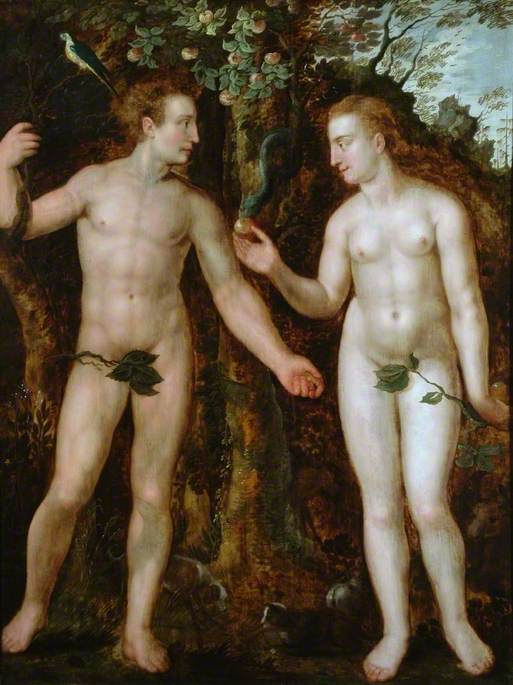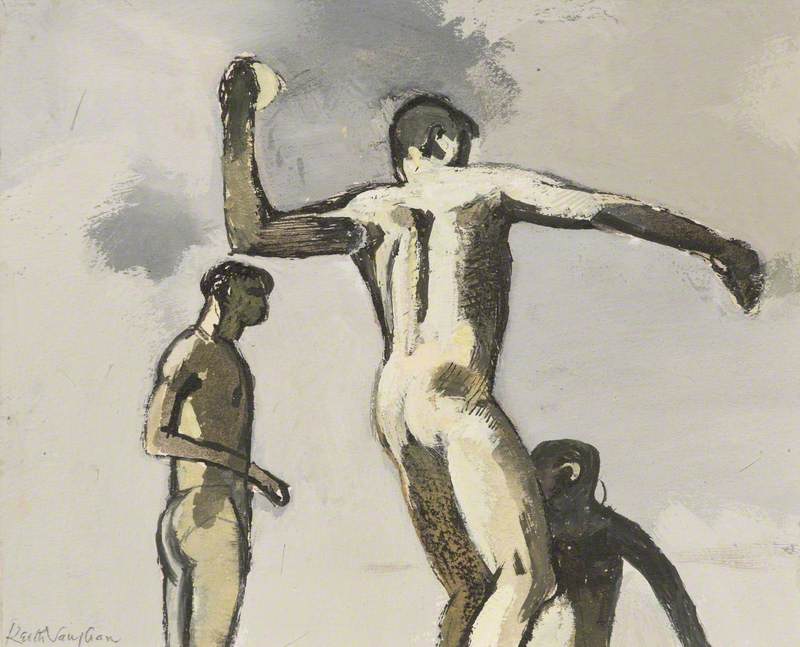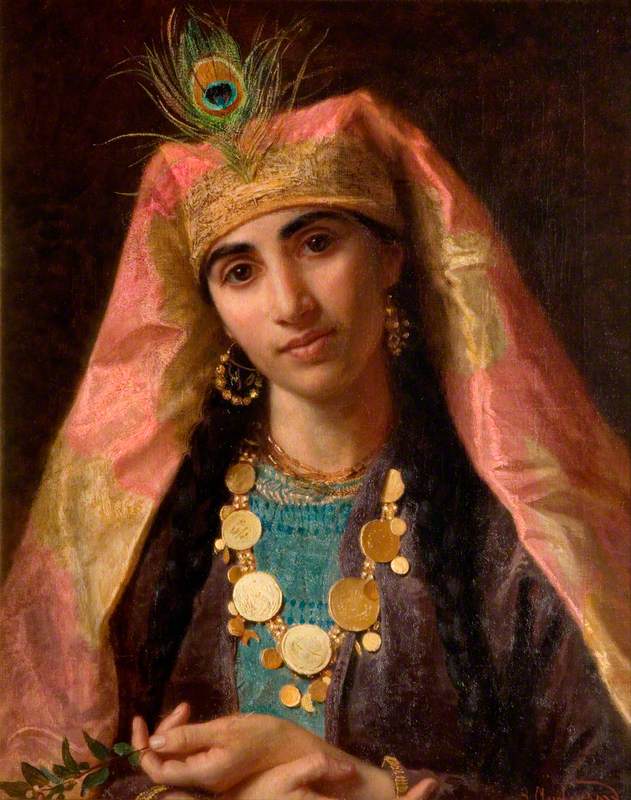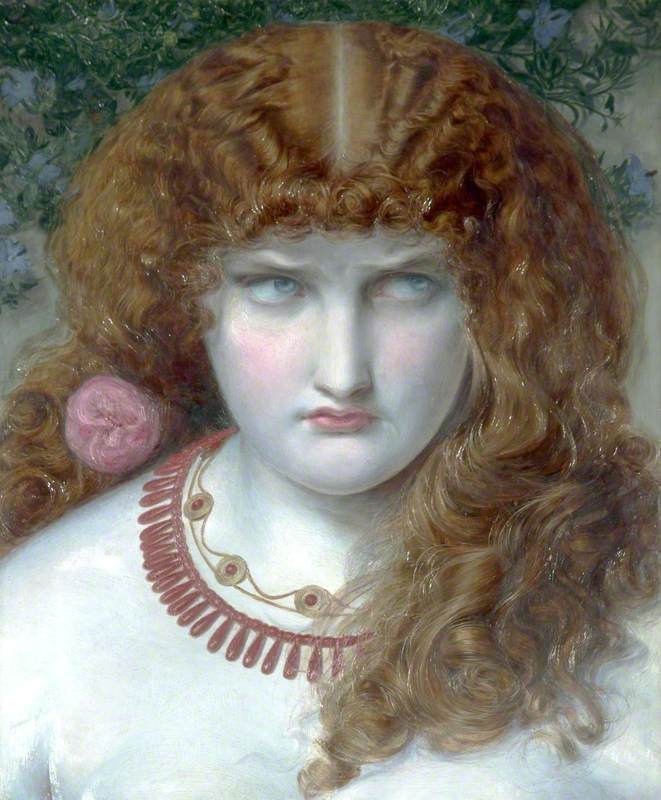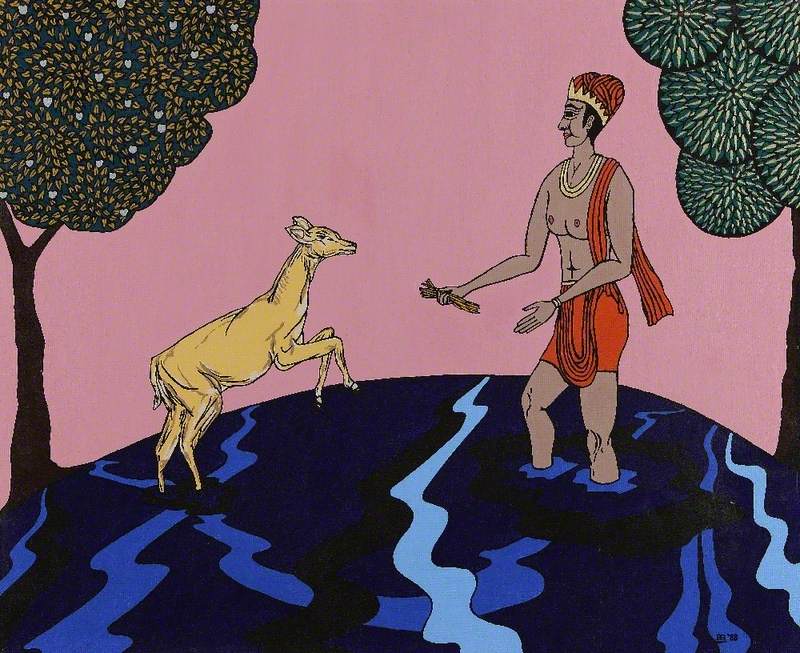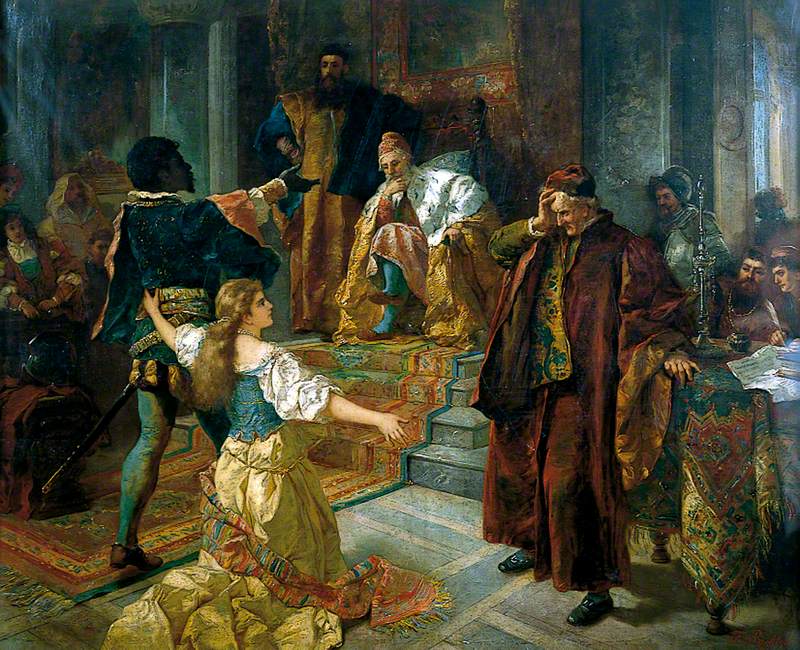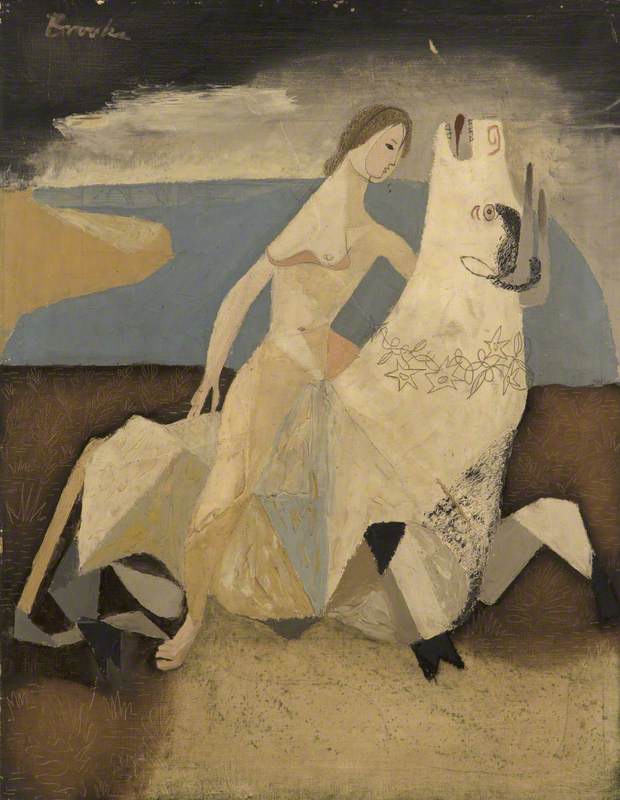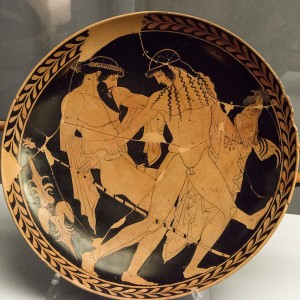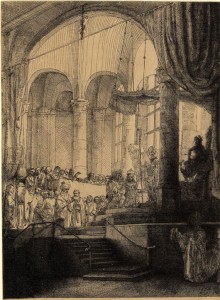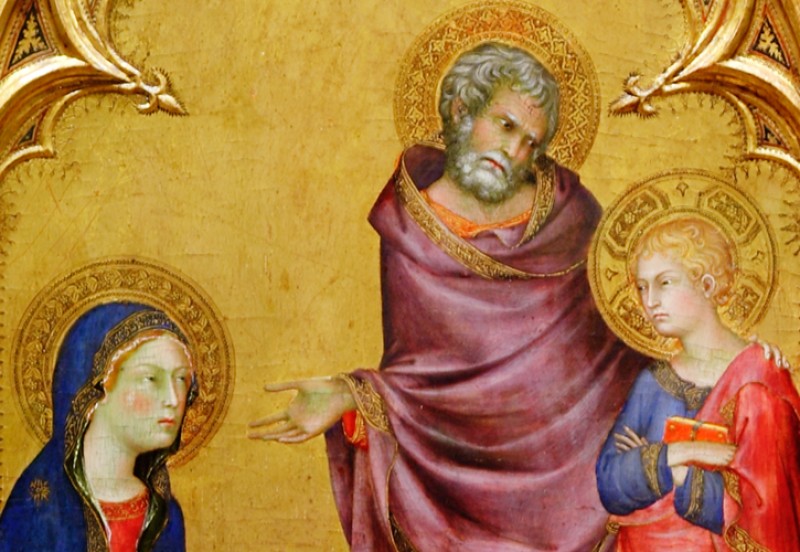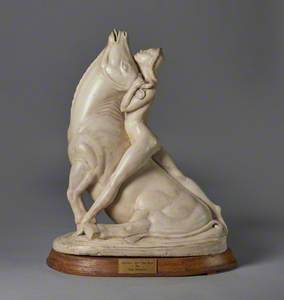We have all experienced an epiphany. They are dazzling moments of understanding that seem to strike us like a bolt of lightning. These common epiphanies are nothing compared to the original meaning of the word, however: a traditional epiphany is the appearance of a god to a mortal.
To most Christians, there is only one Epiphany: the moment that God revealed himself in the form of Jesus Christ. This is generally celebrated on 6th January (and 19th January in the Eastern Church).
But to those who followed the ancient Greek and Roman religions, there were many epiphanies (sometimes referred to as 'theophanies'). With a multitude of gods in the pantheon, there was no telling when one of these deities may drop into your life. Given what happened to many mortals who did meet a god, there was good reason to worry about having your own epiphany.
The Gods on Mount Olympus
(sketch for the ceiling of the Heaven Room, Burghley House) 1690–1694
Antonio Verrio (c.1636–1639–1707) 
The gods of ancient Greece were decidedly anthropomorphic, not only in appearance but in personality. They suffered bouts of rage, moments of tenderness, and most unnervingly they felt the urge of lust. For the mortals, when this ardour was turned on, things could get very messy indeed. Poets and storytellers enjoyed the ribald wooings of gods and artists have always found them inspiring.
Of all the Greek gods it was Zeus who was best known for falling in love, to put it delicately, with humans. Divine methods of romance are not the same as mortal and Zeus was positively protean in the number of shapes he took to win over the hearts of his beloved, or at least seize their bodies.
Danaë was a princess who found herself locked in an impregnable brass tower by her father to prevent her from having children. A prophecy had warned the king that if Danaë had a son then the king would be slain by him. For Zeus, however, 'impregnable' was a challenge. He appeared to Danaë in the form of a shower of gold. The image of Zeus falling as gold into the lap of a maiden has proved irresistible to many artists. This golden rain settled into her and from this union, the hero Perseus was born.
For getting pregnant, Danaë and her son were cast adrift out to sea in a wooden chest by her father, though Zeus ensured they survived and indeed the deadly prophecy of grandfather-slaying would later play out as predicted.
Danaë and the Golden Shower
c.1750
Andrea Casali (1705–1784) 
Animals were one of the favourite guises of Zeus in his seductions. When he lusted after Queen Leda of Sparta, Zeus transformed himself into a glistening white swan. This swan was then pursued by an eagle and fell into Leda's arms seemingly for protection. That night the relationship was consummated and Leda gave birth to two eggs. From these eggs hatched her children: Helen (later of Troy), Clytemnestra, and twins Castor and Pollux.
In antiquity, statues of Leda clutching the swan were popular and painters as diverse as Leonardo da Vinci and Paul Cézanne have produced works retelling this myth.
The daughters of Leda and Zeus played important roles in the Trojan war and its aftermath in Greek myth but one of Zeus' earlier conquests may have sparked the enmity between east and west in the first place.
When Zeus wished to seduce the Phoenician princess Europa, he transformed into a white bull and mixed in with Europa's father's herds.
When she spotted this magnificent animal she approached it and petted it. It proved so biddable that she climbed onto its back.
This was the moment Zeus had been waiting for. Immediately he dashed into the sea with Europa clinging to his back. He swam with Europa all the way to Crete. This moment of abduction can be seen in frescos from ancient Pompeii to modern paintings and sculpture by Valentin Serov, Martin Froy, Thomas W. Whalen and others.
The result of Europa's capture by Zeus was that she became queen of Crete, but not all the lovers of Zeus were so lucky. Zeus's wife Hera, Juno to the Romans, was not pleased by his constant philandering and her revenge could be as terrible as her wrath – usually aimed at the mortal involved.
When Hera discovered Zeus with Io, Zeus attempted to hide Io by transforming her into a white heifer. Hera saw through the ruse and subjected the poor cow to imprisonment by the monstrous hundred-eyed Argus and then to be chased across the Earth by a constantly tormenting gadfly.
When Zeus fell in love with one of his priestesses, Semele, the pair carried out an affair that ended up with Semele becoming pregnant. When Hera learned of this she disguised herself as an old woman and befriended Semele. When Semele told Hera that she was the lover of a god the disguised goddess pretended to doubt her and said Semele should ask for proof of his divinity.
The next time Semele met with Zeus she made him promise to grant her one wish. He agreed. Semele asked to see Zeus in all his power and not in his human form. Zeus begged her not to ask it but when Semele insisted he dropped his disguise. The undimmed glory of a god was too much for a mortal to stand and Semele was incinerated in an instant. Zeus however plucked the embryo of their child from the ashes and implanted it in his thigh. This child developed into the god Dionysus.
It must be said that Zeus was not prejudiced in where he set his heart. He also took male lovers, as when he transformed into an eagle and stole away the handsome youth Ganymede. Ganymede fared better than some of Zeus' lovers, as he became the immortal cupbearer to the gods on Olympus.
The Rape of Ganymede
about 1575
Damiano Mazza (active 1573) (attributed to) 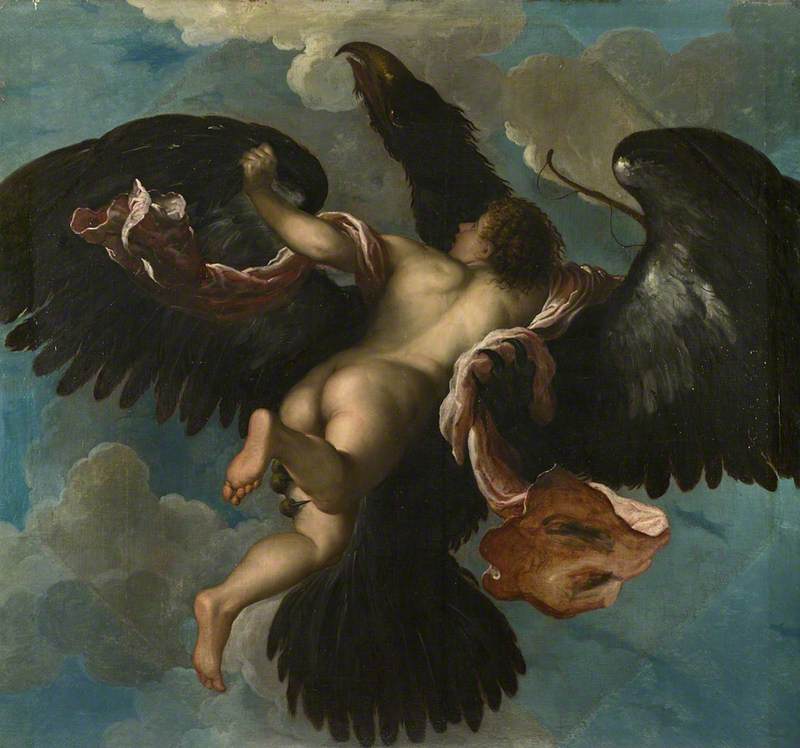
The tales of Zeus' infatuations suggest that even the gods are powerless in the face of love. But what about the personification of love? Aphrodite was often blamed by the other gods for the mischief she caused by making them fall in love with mortals. To teach her a lesson Zeus commanded Eros to shoot her with an arrow of love and make her experience the pain of loving a mortal. When Aphrodite was struck she fell desperately in love with Anchises.
The two shared a night of passion but in the morning Anchises realised he had slept with a goddess, and no good usually comes from that. For her part, Aphrodite felt she had been shamed by sleeping with a mortal. Yet instead of punishing Anchises, she revealed she would bear him a famous son, Aeneas, who would go on to found the Roman race.
Not all goddesses were so forgiving of mortals overstepping the bounds of immortal propriety. The goddess Artemis (or Diana) was mistress of the hunt but also famously a virgin. She surrounded herself with female attendants and had nothing to do with men. While she was bathing one day in the woods, however, the hunter Actaeon stumbled into the glade. When Artemis realised a mortal had seen her nudity, her wrath was immediate. The hunter would become the hunted.
Actaeon was transformed into a stag and pursued through the woods by his own hunting dogs. When they caught him they tore him apart. Many painters have either sought to capture this moment of destruction or have instead attempted to give viewers a peep into the bathing scene – offering us a safe glimpse of the divine without risk to ourselves.
There is perhaps no more popular, or disastrous, epiphany commonly shown in art than the Judgement of Paris. In hundreds of paintings, you will find a shepherd holding a golden apple while three gorgeous goddesses, often scantily clad or entirely nude, try to win his favour. In past centuries it was only by turning to pagan topics that artists would be allowed to paint the uncovered female form.
The myth of the Judgement of Paris tells how, at a wedding, Eris – the goddess of discord – rolled a golden apple into the midst of the gods. On the apple was inscribed the instruction 'For the fairest'. Naturally, each goddess believed it was meant for them. The goddesses Hera, Aphrodite, and Athena all refused to allow the other to claim the apple. When Zeus was asked to judge which was the fairest goddess he wisely decided to delegate the task to Paris of Troy.
The Judgement of Paris
c.1450–1455
Master of the Judgement of Paris (active mid-15th C) 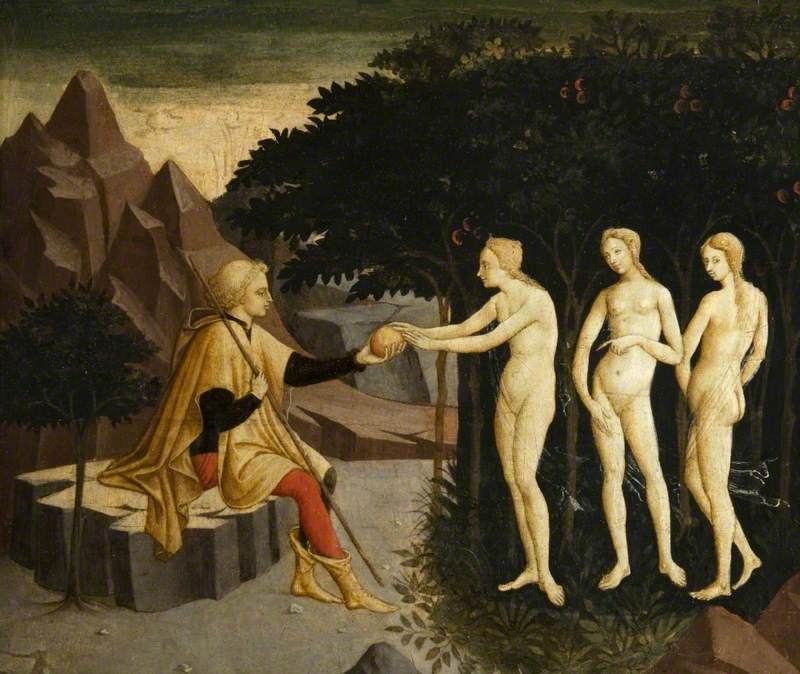
Paintings of the Judgement of Paris place viewers in the sandals of the young man. Imagine you are a young man and three supernaturally beautiful deities appear before you asking: who is the best looking? You've been alone among sheep and goats and suddenly you are asked to involve yourself in the brutal politics of Olympus. The wisest course of action would be to refuse to judge.
Yet do viewers of paintings of this scene ever turn their heads away and refuse to look at the nude forms presented? Paris made his choice. From his judgement sprang the horrors and bloodshed of the Trojan war.
No Greek or Roman would ever wish to meet their gods in the flesh.
Ben Gazur, freelance writer


